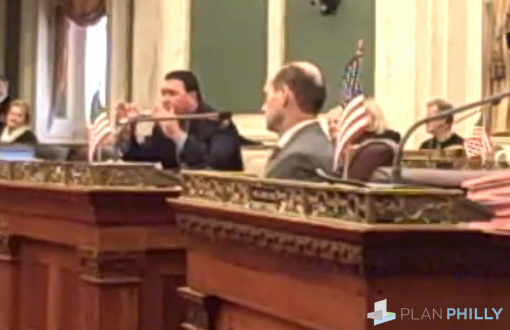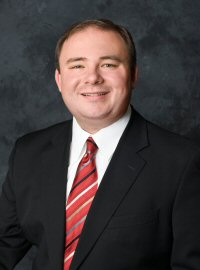Attorney says city’s large numbers of Asians, Slavs are big reason it could handle two casinos
Philadelphia’s large Asian and Slavic populations help make it the right place for a second casino, an attorney for a company that had pondered bidding to run a gaming operation here told the House Gaming Oversight Committee Thursday.
“It is known that we have the two ethnicities that frequent the gambling,” said James J. DiVergilis, who represents Global Gaming, a company that operates no casinos, but considered seeking one of the two Philadelphia licenses awarded in 2006 and now wants to open a casino in the Meadowlands. “The two ethnicities that go to these are the Slavic community and the Asians,” he said. And “outside Brooklyn, North East Philadelphia is the highest Slavic community in the country.”
DiVergilis talks about casinos, Slavs and Asians. Watch his entire testimony here.
DiVergilis said the fact that Slavs and Asians are casino customers doesn’t mean they are gambling. In fact, he said, 68 percent of a casino’s revenues are not related to gambling, but to other amenities. “That’s why it’s so important to get the hotel in there, the restaurant and the banquet halls … and retailing,” he said.
He also gave other reasons why Philadelphia could handle another casino, including that the city is the largest urban area in the country to have casinos.
But freshman legislator and committee member John Lawrence, R-Delaware, was clearly flabbergasted by what he heard.
“Sir, with all due respect, your comments with regards to particular ethnic groups being more or less likely to participate in gambling was somewhat surprising and shocking to me. And disturbing, frankly,” Lawrence said. “I wonder where you come across this information, and how you justify it, frankly.”
DiVergilis told Lawrence that this was not his personal opinion, but what he has read in the gaming trade pubications. “It’s all in the literature,” he said.
Lawrence questions DiVergilis about his testimony
Helen Gym, a community leader and activist with Asian Americans United, an organization which has fought the Philadelphia casinos, was as matter-of-fact as DiVergilis about Asians being seen as good casino customers.
“It’s well known” that the industry targets Asians,” Gym said in a phone interview later in the day. “The gaming industry itself is very open about its racial profiling of communities. That’s part of reason Chinatown raised such serious concerns not only about the proximity of another casino near a high-Asian neighborhood, but really, about predatory practices to bring in gamblers.”
DiVergilis said later he was representing only himself at the hearing. He testified at the request of Rep. Rosita Youngblood, D-Philadelphia, who co-chairs the committee with Rep. Curt Schroder, R-Chester. Schroder is the prime sponsor of the proposed legislation that was the hearing’s topic, a bill that would open competition for the license the state gaming control board revoked from Philadelphia Entertainment Development Partners (aka, Foxwoods) to would-be operators statewide. Youngblood wants to keep the Foxwoods license in Philadelphia. She said in her opening remarks that losing it would mean losing jobs and tax revenues.
Before its license was revoked, Philadelphia Entertainment Development Partners fought to keep it by bringing on a new partner. The first shot was Las Vegas casino mogul Steve Wynn. In a conference call with investors and financial types last spring, Wynn enthused about the proximity of Foxwoods to a large Vietnamese population and other groups that he said like to gamble. Plans given to the gaming board by PEDP and its next prospective partner, Caesars (it was then called Harrahs), showed an Asian gaming floor. “Foxwoods has been explicit,” Gym said. “SugarHouse was advertising for an Asian marketing executive.”
When, at the hearing, Lawrence told DiVergilis that he found “the particular targeting out of particular ethnic groups disturbing,” Lawrence told him he agreed with that.
This did not appease Lawrence. “But then to say we’re going to bring a casino in to facilitate, and to particularly target those ethnic groups – and I understand this is a sensitive subject – but I just find it extremely disturbing,” he said.
DiVergilis again said he agreed.
“Are you saying you are a proponent for bringing the gambling facility to this city?” Lawrence asked him. “As an economic engine, absolutely,” DiVergilis said. “For jobs, absolutely.”
In an interview after the hearing, Lawrence was still agitated by what DiVergilis said. During the hearing, “I restrained myself,” he said. “I don’t really know where to start. This gentleman is running for judge, he’s not just somebody off the street. That’s a position of public trust. And I would say that we need to treat everyone the same.”
DiVergilis’ on-line credentials at Erik B. Jensen Law include a wide variety of experience – including advocating for the state gaming law. He was a candidate for judge in the Court of Common Pleas in 2003 and said during the hearing he is again seeking election.
When asked about the Foxwoods/Harrah’s Asian gaming room, and local Asian advocates long-time assertion that they were being targeted, and SugarHouse’s recent petition to add more table games includes a proposal for an “Asian-themed room” with a noodle bar, Lawrence, who was sworn in last month, said it was the first time he was hearing of any of it.
“I don’t think we should be profiling by race,” he said. The issue is “probably something that warrants looking into.”
Attorney Paul Boni, a board member of Stop Predatory Gambling, told committee members that when he first started fighting casinos in Philadelphia, his primary goal was to stop Foxwoods, which was closest to his home. But Boni said the more he learned about the way the gambling industry works, the more opposed to any casino he became.
He told the committee that before they advance the bill on the table, or any bill that would allow for more casinos, they should answer this question: “What percentage of the revenues of Pennsylvania’s casinos is coming from gambling addicts and problem gamblers?”
Boni quoted from a 2008 book written by a Wall Street Journal reporter called Winner Take All. “90 percent of profits come from 10 percent of the gamblers,” he said. But Boni said he was even more shocked when Dave Jonas, the president of Bensalem’s Parx Casino, told attendees of a gambling conference held about a year ago that “most of the people in his database of gamblers visit Parx casino three or four times a week.”
Boni said – as Jonas did at the conference – that many of the people are coming from nearby. “This is an incredibly abusive, damaging and inefficient way to raise public revenues,” he said.
Rep. Jerry Knowles, R-Schuylkill, Berks, said this issue is a difficult one for him. “There are many people within my district who get on (casino) buses,” he said. “They used to go to Atlantic City, now they go to facilities here in Pennsylvania. And it’s recreational. They go to enjoy themselves, and to have the day off,” he said.
But Knowles said he is concerned about people with gambling addiction. He said he’d like to know the answer to Boni’s question about where the majority of casino revenue comes from.
Some committee members said that people can be addicted to anything from cigarettes to cell phones and asked rhetorically if these things should be outlawed.
Youngblood encouraged Boni to let people know that there is grant money available to start programs to treat gambling addiction.
“Nothing is perfect in this world,” said Rep. Angel Cruz, D-Philadelphia. Cruz asked Boni if he knew of another way to raise revenue for the state. He said that the state isn’t forcing anyone to go to casinos. “It’s a choice,” he said.
Boni said he didn’t see it as pure choice, since many steps are taken to entice people to go to casinos, including allowing them to operate 24-hours a day, serve free alcohol, and get a waiver from local smoking ordinances.
Schroder told Boni that the committee will be looking at many of the issues he raised “when we hold a hearing on compulsive gambling in the very near future.” That hearing, which Schroder later said would be in early March, will look at legislation that has been or soon will be introduced dealing with problem gambling, he said.
After the meeting, Lawrence said that Rep. Paul Clymer, R-Bucks, is working on legislation that would require casinos to mail everyone with “loyalty cards” – in other words, their regulars – with a monthly statement of their losses.
DiVergilis said that if a second license is a possibility for Philadelphia, his client would again consider bidding for it.
Reach the reporter at kgates@planphilly.com.
WHYY is your source for fact-based, in-depth journalism and information. As a nonprofit organization, we rely on financial support from readers like you. Please give today.





